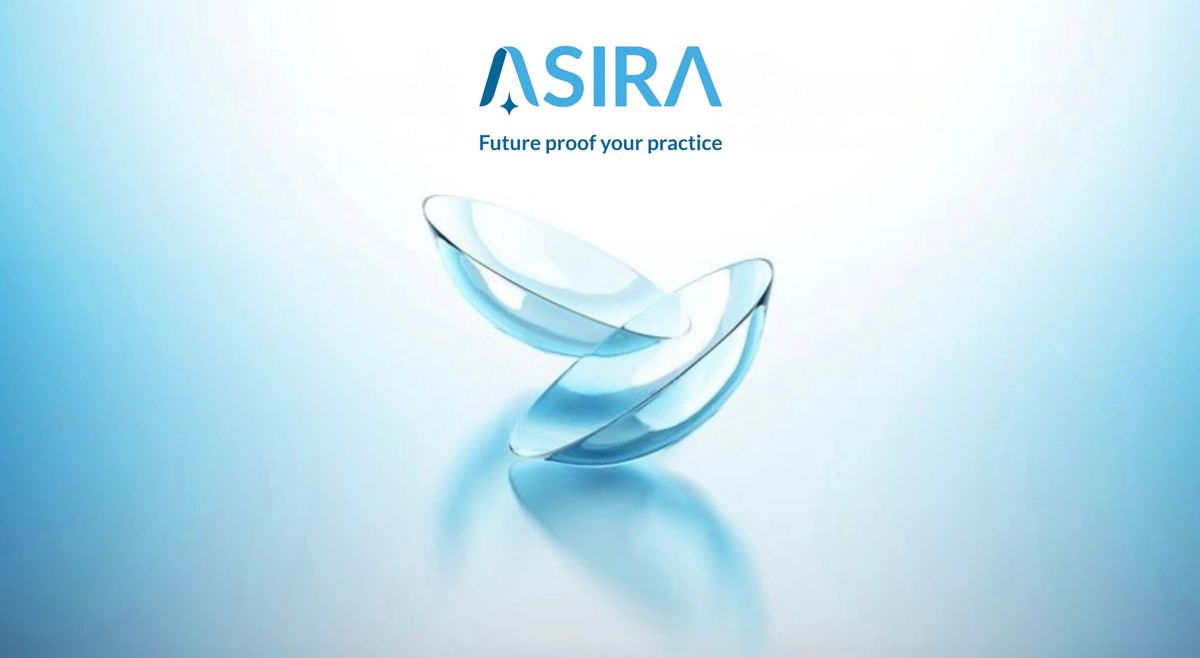Optometry Practice: Lets talk about Contact Lenses...
This article explores the art of contact lens dispensing and how it can help build your optometry practice.

This article explores the art of contact lens dispensing and how it can help build your optometry practice.
Introduction
As an optometrist, you understand the importance of staying up to date with the latest advancements in eye care technology and products. One of the most popular and effective products in the industry is contact lenses. Not only do they provide an alternative to traditional glasses, but they also offer a range of benefits to patients that can help grow your optometry business. While contact lenses are a popular choice for many people worldwide, it is important to discuss their pros and cons with patients so they can make an informed decision In this post, we will discuss how contact lenses can help grow your business, why you should consider offering them to your patients and some key points to consider when talking to patients about contact lenses.
Comfort and Convenience
One of the main reasons people prefer contact lenses is for their convenience and comfort. Contact lenses offer a wider field of vision compared to glasses and don't interfere with physical activities. Patients who are athletes or work in physically demanding jobs often prefer contact lenses. Moreover, contact lenses don't fog up or get wet during rainy weather, making them ideal for people living in humid or rainy climates. It's essential to emphasize to patients that they need to clean and store their lenses properly to avoid eye infections or other complications.
In addition to the benefits mentioned above, contact lenses can be more aesthetically appealing to some patients who are self-conscious about wearing glasses. This factor is especially important for younger patients who may be more sensitive to the opinions of their peers. Therefore, it's important to discuss with patients not only the comfort and convenience of contact lenses, but also their potential psychological benefits.
Types of Contact Lenses
As you know, there are two main types of contact lenses: soft lenses and rigid gas permeable lenses. Soft lenses can be subcategorised into materials and modalities and are the best option for adult contact lens wearers with no ocular surface abnormalities and for the correction of myopia, hypermetropia and regular astigmatism. Rigid gas permeable lenses can subcategorised into corneal, scleral and hybrid, and fall under 'speciality' contact lenses as they are indicated for myopia management, irregular astigmatism and management of ocular surface disease. They also require some specialist training. It is essential to be familiar with the nuances of each type of lens, in order to discuss them with your patient and to help them understand which option would be best suited for their specific needs.
Proper Care and Maintenance
Contact lenses require proper care and maintenance to ensure they remain safe and comfortable to wear. Patients should always wash their hands before handling their lenses and avoid sleeping with them on. They should also clean and disinfect their lenses regularly, as recommended by their eye care practitioner. Patients should never share their lenses with others, even family members, as this can lead to contamination and infection. Tap water should never come in contact with their contact lenses, as it can cause acanthamoeba keratitis, which can be devastating to the ocular surface.
It's important to discuss these guidelines with patients in detail, and to provide them with a comprehensive set of instructions on how to care for their lenses. By doing this, you can help patients avoid potential complications and maintain good eye health.
Other Considerations
While comfort, convenience, types of lenses, and proper care and maintenance are all important factors to consider when talking to patients about contact lenses, there are other considerations to keep in mind as well. For example, patients who have dry eyes may not be good candidates for contact lenses. Additionally, patients who work in dusty or dirty environments may encounter more difficulties when wearing contact lenses.
It's important to discuss these considerations with patients, and to help them evaluate whether contact lenses are a viable option for their specific needs. In some cases, patients may require additional treatment or alternative vision correction options.
Mythbusting
As an optometrist, it's important to educate patients about the different options available for vision correction, including contact lenses. However, some patients might have reservations or concerns about contact lenses, oftentimes due to myths and misconceptions surrounding them. Here are some common myths about contact lenses and the facts to counter them:
- Contact lenses can get lost behind your eye: This is a common misconception that has been debunked many times over. It is physically impossible for a contact lens to get lost behind your eye. The conjunctiva, the thin membrane that covers the white part of your eye and the inside of your eyelids, prevents anything from getting behind your eye.
- Contact lenses are uncomfortable and difficult to wear: This is another common myth that is simply not true. Modern contact lenses are designed to be comfortable and easy to wear, and most people adapt to them quickly. In fact, many people find contact lenses to be more comfortable than glasses, especially during physical activities.
- Contact lenses can permanently damage your eyes: This is another myth that has no basis in reality. Contact lenses are safe to wear as long as they are properly fitted and cared for. It is important to follow the instructions provided by your eye doctor for cleaning and storing your lenses, and to avoid wearing them for longer than recommended.
- Contact lenses are expensive and not covered by insurance: While it is true that contact lenses can be more expensive than glasses, many insurance plans do cover the cost of contact lenses. Additionally, there are many different options available at different price points, making it possible to find a contact lens that fits your budget.
It's important to dispel these myths and provide patients with accurate information about the benefits and risks of contact lenses. By doing so, you can help patients make informed decisions about their vision correction options and alleviate any fears or concerns they may have about contact lenses.
Increased Revenue
Offering contact lenses to your patients can also increase revenue for your optometry business. Patients who opt for contact lenses will need regular check-ups and refills, which can provide a consistent source of income for your practice. Additionally, contact lenses are often priced higher than traditional glasses, which can also increase revenue for your business. By providing high-quality contact lenses and exceptional customer service, you can build a loyal patient base and increase revenue for your optometry business.
Differentiate Your Practice
In a competitive industry like optometry, it's important to differentiate your practice from others in the area. By offering contact lenses, you can provide a unique product and service that sets you apart from other practices, particularly if you have acquired the appropriate training and expertise to fit speciality contact lenses, such as Orthokeratology and Scleral contact lenses. Moreover, you can use your expertise to help patients choose the right type of contact lens and provide them with the necessary information about proper care and maintenance. By doing so, you can establish yourself as a trusted authority in the industry and attract new patients to your practice.
Conclusion
As an optometrist, it's important to provide patients with a holistic understanding of the different options available for vision correction, including contact lenses. By discussing the benefits of contact lenses with patients, as well as the different types of lenses available, you can help them make informed decisions about their vision correction options. Additionally, by providing patients with instructions on how to care for their lenses, you can help them maintain good eye health throughout their lives. By taking the time to discuss contact lenses with patients in detail, we can help them achieve optimal vision correction outcomes, and maintain good eye health for years to come. Offering contact lenses to your patients can provide a range of benefits to your optometry business. Not only do they offer convenience and comfort to patients, but they can also increase revenue and differentiate your practice from others in the area. By providing exceptional customer service and high-quality contact lenses, you can build a loyal patient base and grow your optometry business for years to come.
ASIRA is a simple and secure, cloud-based software tool, built BY optometrists FOR optometrists, that helps eye care professionals reduce the time and effort required to maintain clinical records, schedule appointments, generate bills, manage inventory and much more!
To find out more, visit www.asira.health and sign up for a 30-Day FREE TRIAL! If you're a new practice owner or a fresh graduate thinking of entrepreneurship, visit www.asira.health/optompreneur to learn how ASIRA can help reduce your costs and increase revenue.

